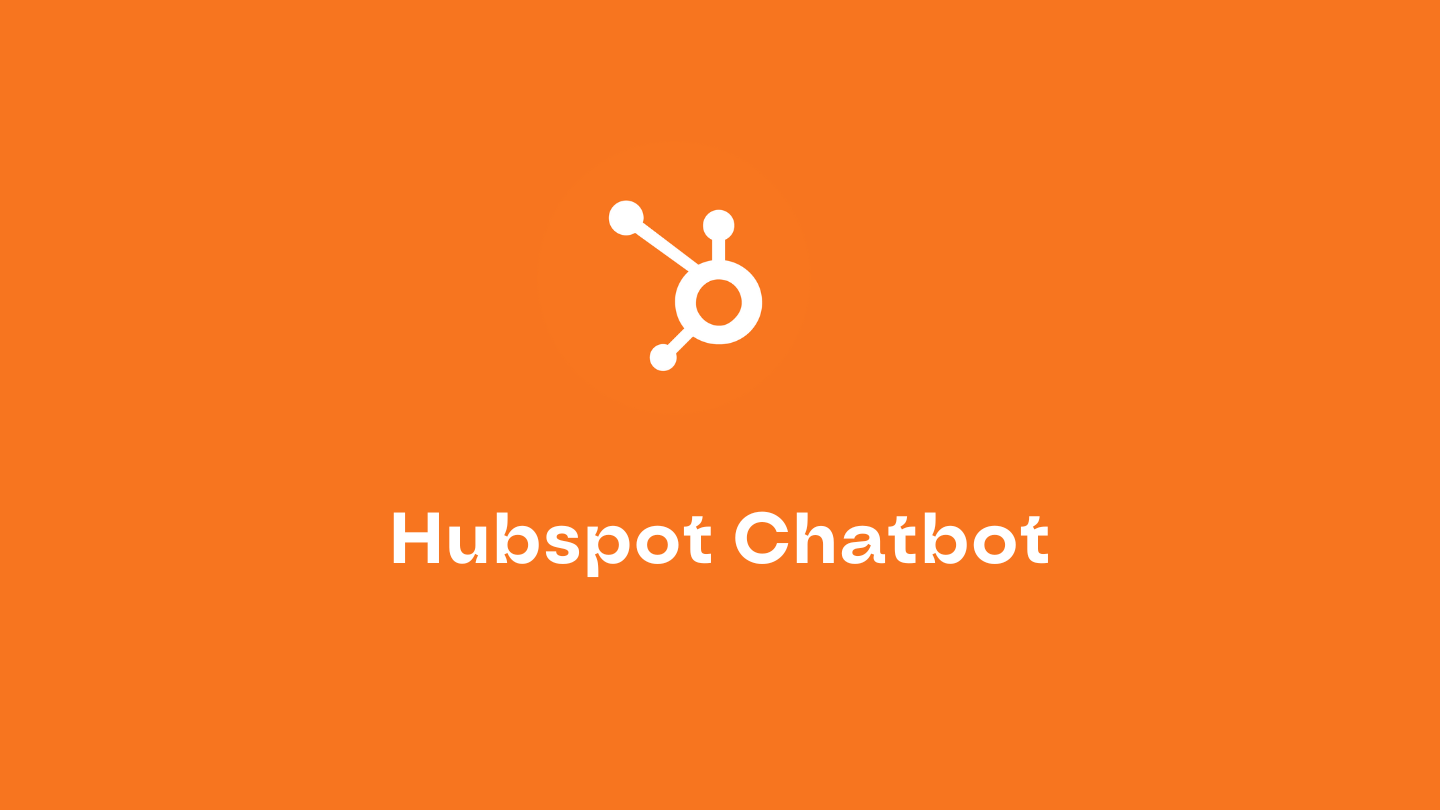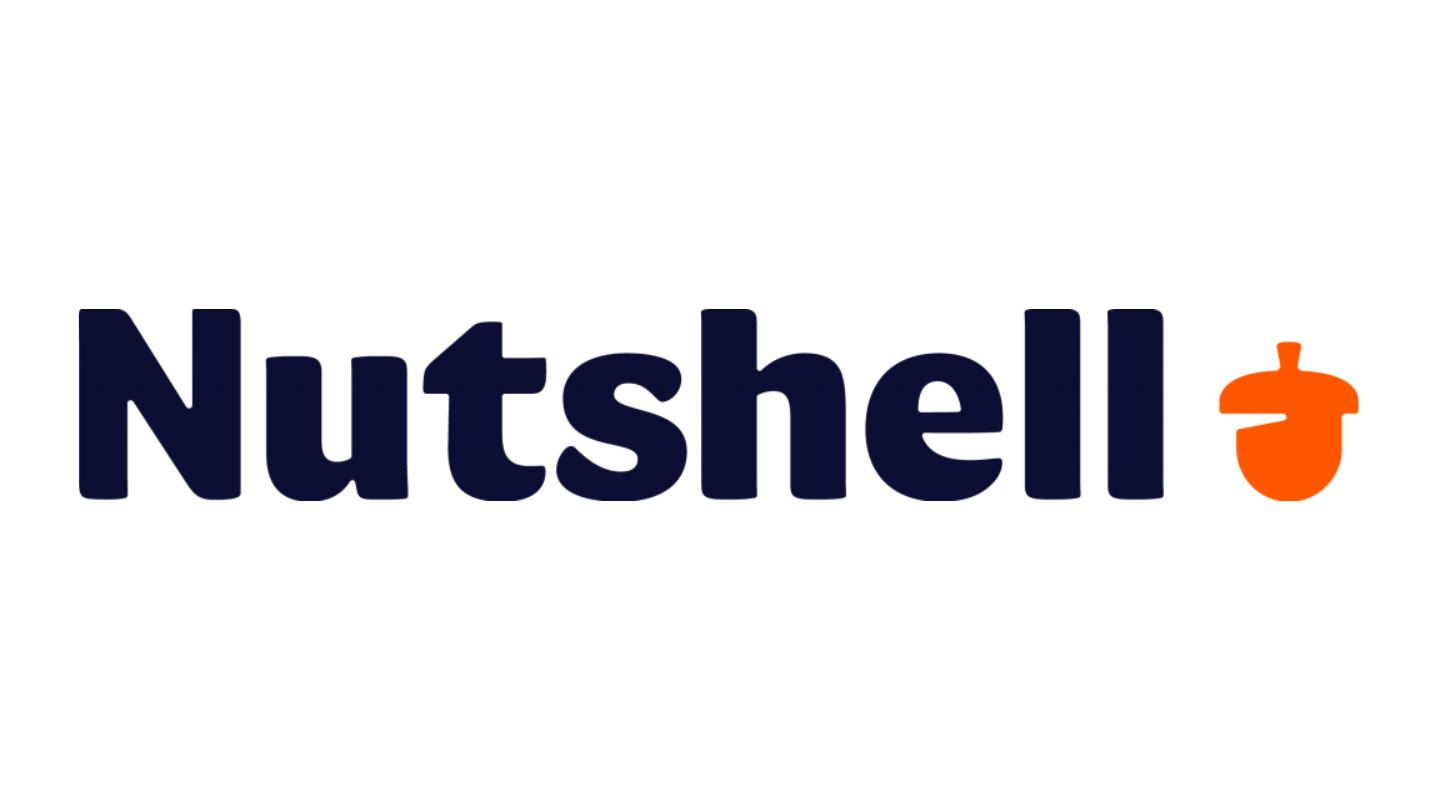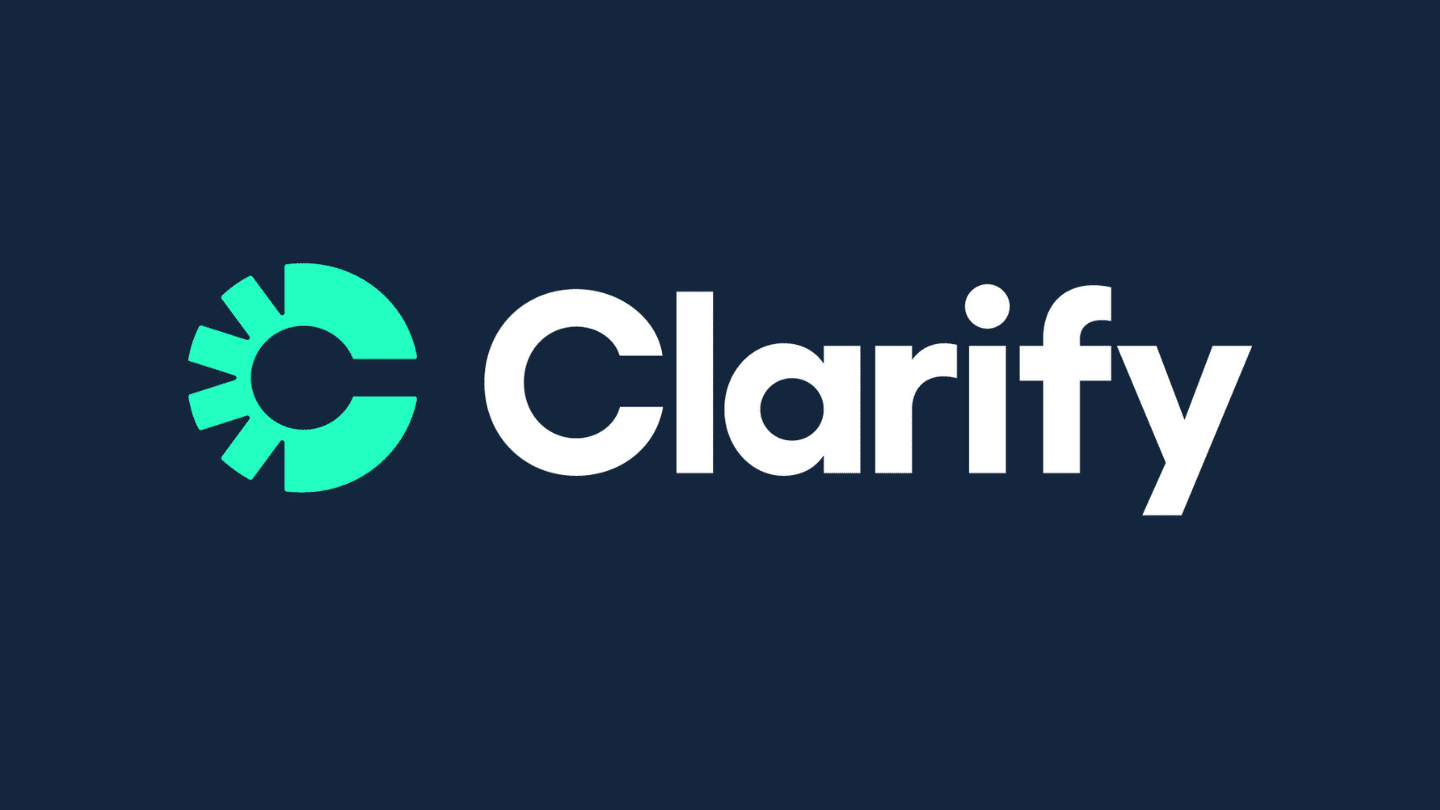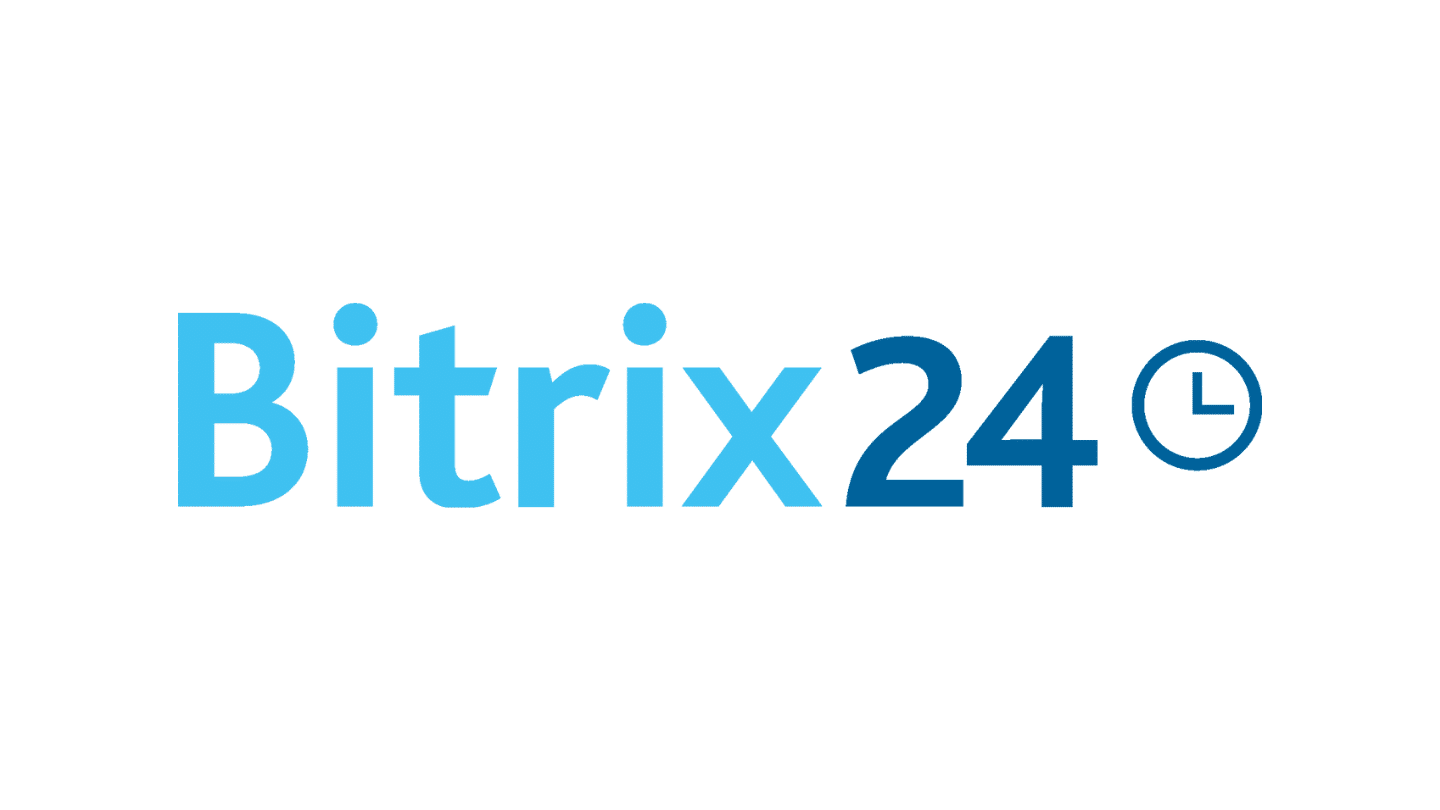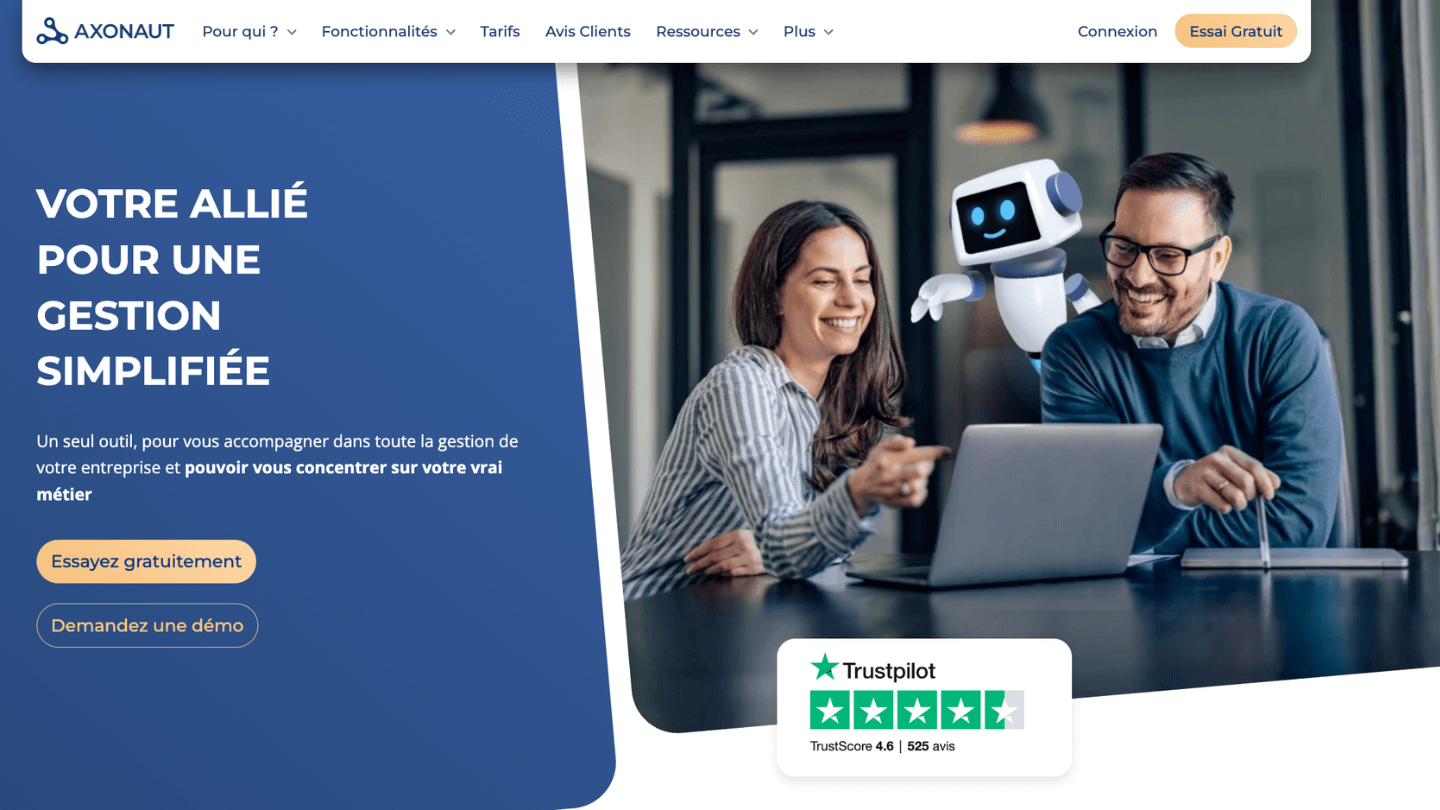Salesforce pricing starts at $25 per user per month for the Starter plan and can go up to $330 per user per month, depending on the plan and features selected. This excludes taxes and requires a minimum commitment of one year, meaning Salesforce costs range between $300 and $3,960 per user annually.
While these prices may seem high, especially for large enterprises, Salesforce also provides an affordable option for small businesses and startups. In 2023, Salesforce launched the Salesforce Starter plan at just $25 per user per month, providing access to the key features of its platform—Sales, Marketing, and Service Cloud—making it an attractive option for small businesses.
However, it’s important to note that the cost of a Salesforce project often extends beyond the license. In the second half of this article, we will cover additional costs that you should anticipate to fully understand Salesforce pricing.
Check out our recommendation engine to shortlist the 3 CRM apps that best fit your requirements
Sommaire
Salesforce Starter: A $300 per Year Plan for Small Businesses
Salesforce is typically known for its premium pricing, but the company has expanded its offerings to make its solutions more accessible to smaller businesses. The Salesforce Starter plan, introduced in 2023, is priced at just $25 per user per month (billed annually). With a mandatory annual commitment, this plan works out to $300 per user per year, which is competitive in the CRM market.
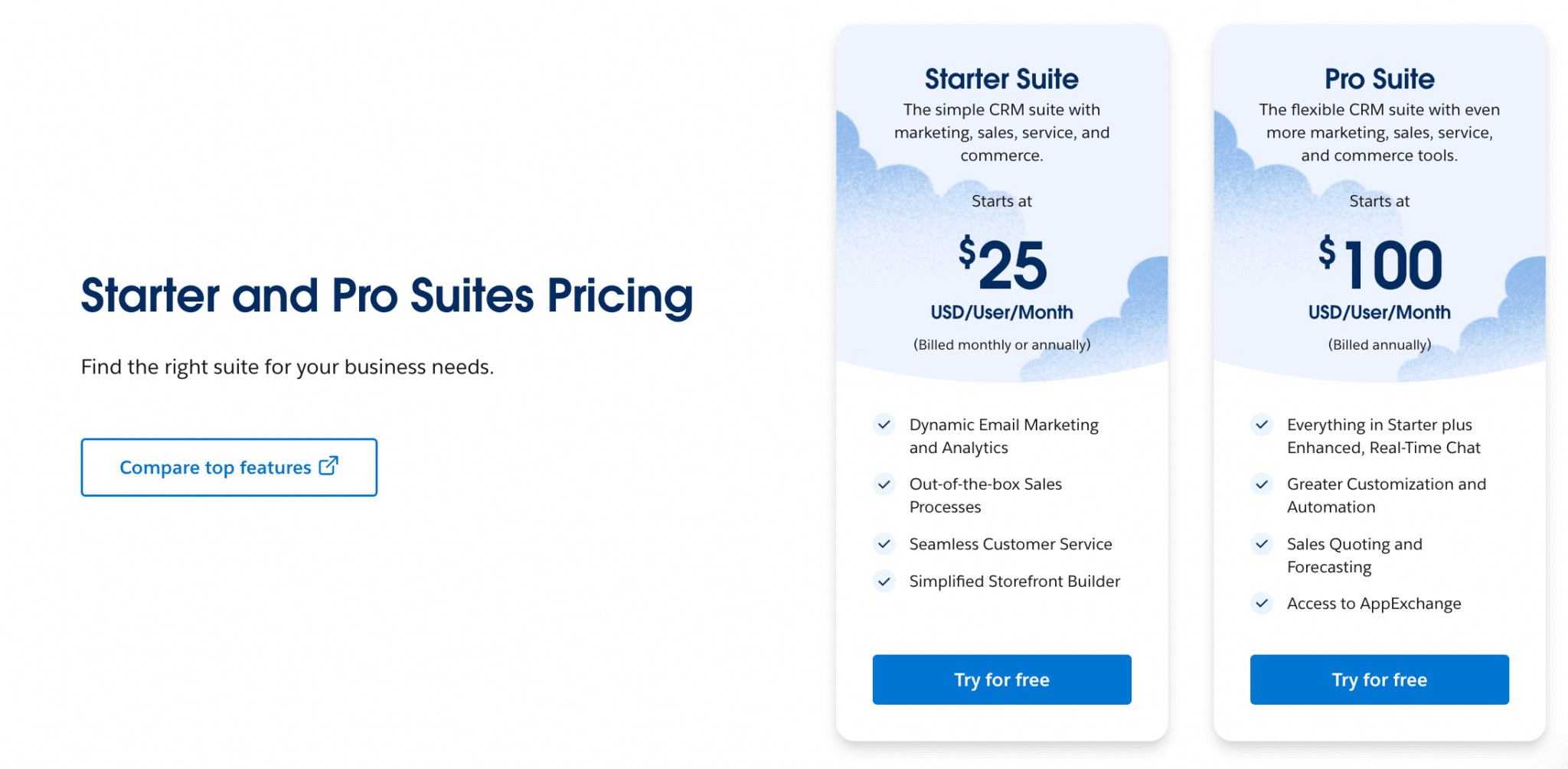
Similar to HubSpot’s Starter plan, this package is designed to compete directly with other affordable CRMs like Pipedrive and Zoho. For a team of five users, the annual cost comes to $1,500, making it a great entry-level option for small businesses. Plus, Salesforce offers a 30-day free trial, giving potential customers a risk-free opportunity to explore the platform before committing.
The Salesforce Starter plan provides access to the essential features needed for small business operations, including:
- Sales pipeline management, prospect tracking, customer management, and reporting.
- Email marketing campaigns and basic lead nurturing.
- Omnichannel customer service, including ticket management and a knowledge base.
However, there are limitations. For example, in the marketing module, users can only manage email campaigns—other channels like SMS or push notifications are not available. Additionally, the Journey Builder for marketing automation is not included. Customer support is limited to online documentation with no live assistance.
In summary, the Starter plan is ideal for small teams with straightforward CRM needs. For more detailed information on the Starter plan features, you can visit this link.
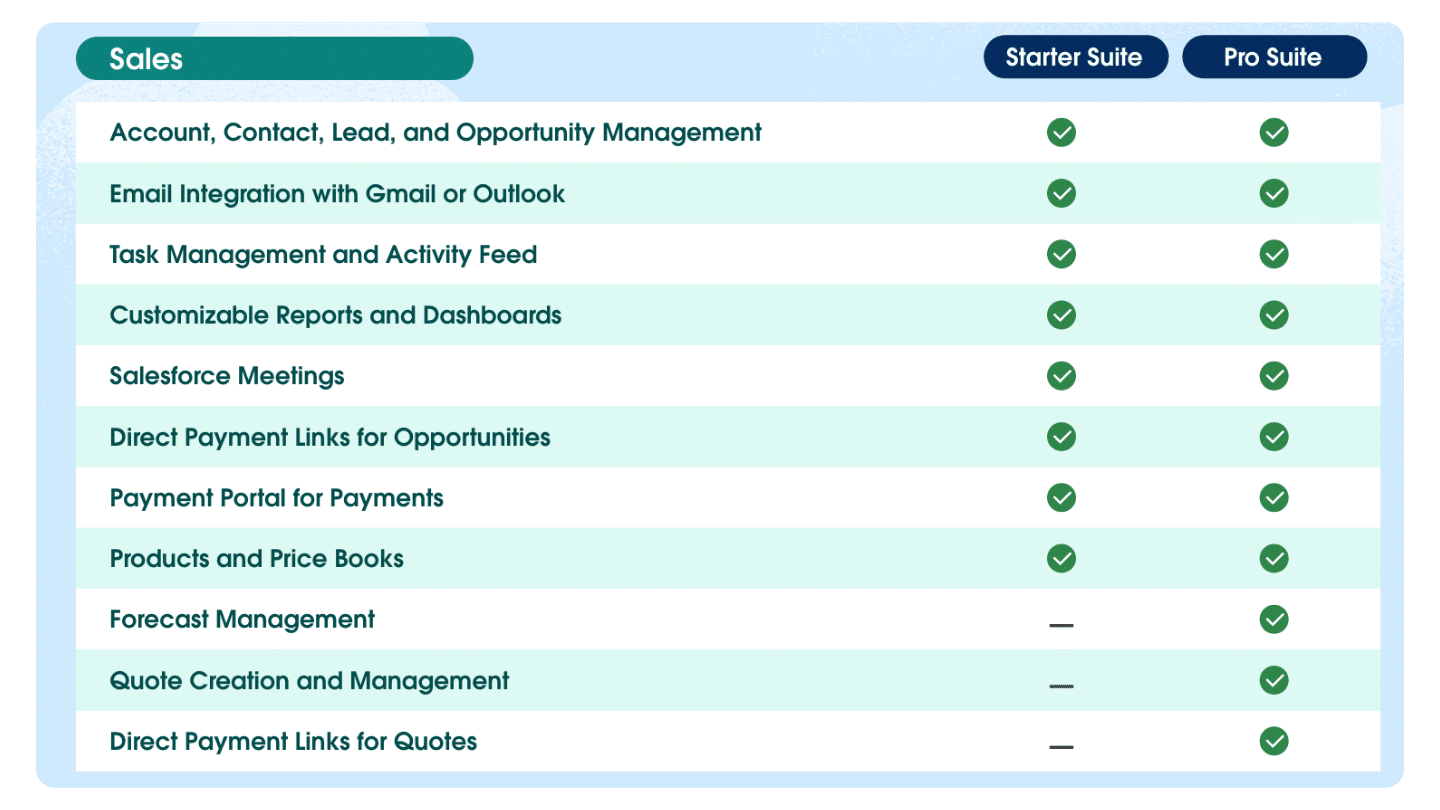
Salesforce offers two key add-ons to enhance the Starter plan:
- Slack Pro at $7.25 per user per month, providing full access to Slack for team collaboration.
- Premier Success Plan at 30% of your Starter plan subscription, which provides 24/7 live customer support. For example, for a team of five, this would cost an additional $450 annually.
As your business grows, upgrading to a higher-tier plan is seamless. Let’s explore the next pricing tiers available for larger teams.
Salesforce Pricing: Breakdown of Other Subscription Plans
If you’re investigating Salesforce pricing, you’re likely interested in their flagship product, Sales Cloud, which helps companies manage sales processes, customer relationships, and lead management.
Salesforce Sales Cloud offers various pricing tiers, primarily targeted at mid-sized and large enterprises due to its robust feature set and relatively high cost. However, it can also be a good fit for growing SMEs with more complex CRM needs.
Four Salesforce Sales Cloud Pricing Plans
Salesforce offers four primary subscription tiers for Sales Cloud (five if you include the Starter plan). Here’s a quick overview:
- Starter Suite – $25 per user, per month: This entry-level plan is designed for small teams (up to 10 users) and includes basic CRM functionality. It’s ideal for small businesses looking to manage leads, contacts, and opportunities with limited customization and reporting capabilities.
- Pro Suite – $80 per user, per month: The Pro Suite adds more advanced CRM tools like workflow automation, collaboration features, and improved reporting. This plan is ideal for growing SMBs that need more functionality than the Starter Suite but still require simplicity and ease of use.
- Enterprise – $165 per user, per month: The Enterprise plan unlocks advanced automation tools, sales process management, and customization options. It’s suitable for larger businesses with complex sales processes that require deeper CRM capabilities, including sales forecasting and more granular control over team performance.
- Unlimited – $330 per user, per month: The Unlimited plan provides the full range of Salesforce features, including priority support, access to a dedicated success team, and expanded customization options. It’s best for large enterprises that need comprehensive CRM capabilities, unlimited access to Salesforce’s API, and premium support services.
- Einstein 1 Sales – Custom pricing: This plan adds AI-driven insights and predictive analytics powered by Salesforce’s Einstein AI. It provides advanced forecasting, lead scoring, and recommendations for optimizing sales performance. Einstein 1 Sales is ideal for organizations looking to leverage AI to enhance decision-making and drive sales growth.
Few remarks :
- All plans require a one-year commitment. Salesforce does not allow cancellation after a few months, so subscribing means committing for a full year. Prices are exclusive of taxes.
- The pricing model is user-based, meaning you’ll pay for each user accessing the platform.
- You can upgrade plans at any time, for example, moving from the Enterprise plan to Unlimited as your business needs evolve.
- The Premier Success Plan, which includes 24/7 live customer support, is only bundled with the Unlimited plan. For other plans, it must be purchased separately at 30% of the subscription cost.
Offers Tailored to Business Size and Needs
| Starter Suite | Professional | Enterprise | |
|---|---|---|---|
| Price (per user / per month, billed annually) | $25 | $80 | $165 |
| Ideal for | SMEs | Growing SMEs and mid-sized businesses | Large enterprises |
| Max. number of users | 5 | Unlimited | Unlimited |
| Lead management | ✔ | ✔ | ✔ |
| Opportunity management | ✔ | ✔ | ✔ |
| Lead Scoring | ✘ | ✔ | ✔ |
| Sales forecast | ✘ | ✔ | ✔ |
| Workflow Automation | ✘ | ✔ | ✔ |
| Collaboration | ✔ | ✔ | ✔ |
| Distribution of opportunities | ✘ | ✔ | ✔ |
| Advanced reporting | ✘ | ✔ | ✔ |
| Email marketing | ✔ | ✔ | ✔ |
| API | ✘ | $15 / user / month | ✔ |
| Storage | – File storage: 1 GB – Data storage: 10 GB + 20 MB per user |
– File storage: 10 GB + 2 GB per license – Data storage: 10 GB + 20 MB per user |
– File storage: 10 GB + 2 GB per license – Data storage: 10 GB + 20 MB per user |
| 24/7 support | ✘ | ✘ | ✔ |
| Billing | Monthly or annual | Annual | Annual |
What about the pricing of other Salesforce products?
Salesforce is more than just a single product—it’s an expansive suite of solutions designed to complement its core offering, Sales Cloud.
Here’s a quick breakdown of Salesforce pricing for some of its other flagship products:
- Service Cloud for managing customer support. Pricing follows the same structure as Sales Cloud, with five options: $25, $80, $165, $330, or $500 per user per month, depending on the plan.
- Marketing Cloud for managing marketing campaigns and automation. The pricing can be complex and varies depending on the product chosen, but here are the main options:
- Marketing Cloud Account Engagement (formerly Pardot), starting at $1,250 per month with an annual commitment. This option is designed for B2B marketing, providing features like lead scoring, nurturing, campaign management, and reporting.
- Marketing Cloud Engagement, starting at $1,250 per month, aimed at B2C marketing efforts, with comprehensive campaign and customer engagement tools.
- Marketing Cloud Personalization, starting at $100,000 per year. This package offers advanced personalization features, including web personalization, segmentation, A/B testing, and product recommendations.
- Pardot, Salesforce’s B2B marketing automation tool, designed to automate key marketing actions like lead generation and scoring. Pricing for Pardot is available upon request.
- Data Cloud (formerly known as Genie), Salesforce’s Customer Data Platform (CDP), centralizes and unifies customer data across multiple sources. Pricing details are not publicly available.
- Tableau, Salesforce’s powerful business analytics and reporting tool. Pricing ranges from $15 to $75 per user per month, depending on the plan, with three options available to meet your data analysis needs.
- Platform, Salesforce’s tool for building custom applications. Pricing starts at $25 per user per month for up to 10 apps, or $100 per user per month for up to 110 apps, making it highly scalable for businesses of all sizes.
- Community Cloud, tools designed to connect you with other businesses and customers:
- Self-Service Community: Pricing starts at $2 per login or $5 per member per month for the basic plan, or $6 per login or $15 per member for the Community Plus plan, which includes advanced role-sharing and task delegation features.
- Partner Relationship Management: The Partner Community plan starts at $10 per login or $25 per member per month, offering tools to manage indirect sales teams, distributors, and resellers.
- Quip, Salesforce’s collaborative tool, is available at $100 per user per month, enabling real-time collaboration and document sharing.
In addition, Salesforce offers the AppExchange, a marketplace where you can browse and download thousands of plug-ins to enhance and customize your Salesforce experience.
To make the most of your Salesforce investment, explore our comparison of Salesforce AppExchange applications.
Salesforce project costs by company size
The true cost of a Salesforce project goes beyond just the license fees. Various factors such as integration, support, and additional storage can significantly impact your overall budget.
To provide a clearer picture, we’ve outlined the estimated costs for three types of businesses based on their size and CRM needs:
- Small business with a complex sales organization and multiple customer interactions (B2B services) – 5 licenses.
- Medium-sized business with a structured sales hierarchy, a marketing team, and indirect sales partners – 40 licenses.
- Large business with multiple sales outlets, a direct-to-consumer website, and a partner network distributing the solution – 120 licenses.
Here is a detailed breakdown of the estimated Salesforce project costs for these company profiles:
| Simple Needs | Intermediate Requirements | Advanced Needs | |
|---|---|---|---|
| Definition | For small and medium-sized businesses seeking an easy-to-use CRM to improve lead tracking. Estimated for 5 licenses. | For more advanced SMEs looking for robust lead management with advanced reporting. Estimated for 40 licenses. | For advanced SMBs & large businesses looking to unify the customer experience across multiple channels and teams. Estimated for 120 licenses. |
| CRM Software Prices | $25 per user per month | $80 per user per month | $165 per user per month |
| Customer Service | Basic | Basic | Premier support (+30% of the license cost for enhanced customer service) |
| Integration Costs | $5,000 | $50,000 | $250,000 |
| Add-on: 500 MB of extra storage | – | $125 per month | $500 per month |
| Add-on: Salesforce Mobile | $50 per user per month | $50 per user per month | $50 per user per month |
| Total Cost Year 1 | $7,100 | $99,560 | $585,580 |
| Total Cost Year 2 | $2,100 | $49,560 | $335,580 |
Salesforce cost items
Implementation costs
The standard version of Salesforce is included in the license cost, but to access discounted Salesforce training programs or gain proactive support from a dedicated account manager, you’ll need to choose one of the advanced support plans: Premier or Signature.
For the Premier plan, you’ll need to add an extra 30% to the cost of your license. Signature plan rates are available on request only.
The cost of integration
Salesforce is a highly customizable platform that supports an extensive range of sales, marketing, and service functions. While this makes it extremely versatile, it can also increase the costs associated with integration.
To implement Salesforce successfully within your organization, you may need to enlist the help of an experienced Salesforce integrator who can tailor the platform to your specific business processes and needs.
Although not mandatory, businesses often opt to work with third-party consultants, manage the integration internally, or use Salesforce’s own professional services (available at an additional cost).
A typical Salesforce implementation process involves several critical steps:
- Business process analysis
- Data migration from legacy systems
- Custom development (if required)
- User testing and quality assurance
- Deployment
- Ongoing training and user support
These steps are often resource-intensive, even for larger enterprises.
The Salesforce integrator ecosystem plays a crucial role in ensuring your CRM deployment is successful and seamlessly integrated with your existing tools.
There are three main types of CRM integrators to consider:
- Digital Services Companies (ESN), offering technical expertise or consulting services.
- CRM-specialized integrators, particularly focused on Salesforce.
- Experts in broader business applications, such as ERP, payroll, accounting, and financial management systems.
Keep in mind that Salesforce training and certifications are extensive, costly, and often quite challenging to complete. As a result, Salesforce-certified consultants are relatively scarce, driving their daily rates higher. Independent consultant fees typically range between $500 and $900 per day.
In practice, Salesforce integration can cost anywhere from $5,000 for a small setup to $50,000 per year for a mid-sized sales team, depending on your company’s size, industry, operational complexity, and objectives.
Customer support
Salesforce’s entry-level plans include basic customer support, which typically offers a two-day response time and access to the Salesforce community forums. However, sales leaders often underestimate the importance of advanced support when it comes to ensuring successful CRM implementation.
To maximize your investment in Salesforce, you’ll likely need:
- 24/7 phone support
- Access to developers for technical issues
- Faster response times
- Success coaching
These services are bundled into Salesforce’s Premier Success Plan, which costs an additional 30% of your license fee. For even more comprehensive support, you can opt for the Signature Plan, which provides personalized support and is priced on request.
Salesforce’s hidden costs
When evaluating CRM software like Salesforce, it’s common to focus on the license price. However, hidden costs—such as functional limitations and storage—can quickly increase your total expenses beyond initial expectations.
Data storage limitations
Data and file storage is one of the most significant additional costs, regardless of which Salesforce license you choose. The basic storage provided by Salesforce includes:
- 1 GB of data storage for core items such as accounts, record types, contacts, Google Docs, leads, and more.
- 10 GB of file storage for documents and attachments used within your organization.
If you upgrade to the Professional or Enterprise plans, you receive:
- 20 MB of data storage per user
- 612 MB of file storage per user
- For the Unlimited edition: 120 MB of data storage per user
As your business grows, these limits can quickly become insufficient, forcing you to purchase additional storage. Salesforce offers extra storage in increments of 50 MB and 500 MB, with 500 MB priced at $125 per month. Additional file storage is available for $5 per month.
Since storage is billed based on the amount of data used (rather than per user), your costs can escalate significantly as your data needs increase—well beyond the original license price.
API call limits
API call limits can have a significant impact on your CRM’s scalability and future growth.
Salesforce imposes a limit on the number of API calls, which represents the total interactions between your CRM and external data sources (such as third-party applications). The default limit is 15,000 API calls per 24-hour period.
While this may seem like a large number, every query or interaction between Salesforce and external apps counts as an API call. It’s surprisingly easy to reach this limit, especially if your business depends heavily on external integrations.
If you exceed the limit, you may need to purchase additional licenses or upgrade to Salesforce Performance Unlimited, which offers higher API call limits to better support heavy usage.
Offline access to Salesforce
Another crucial element of Salesforce pricing is offline access to your CRM. Often, sales teams need to access CRM data while on the go, even without an internet connection.
Salesforce offers an offline feature called “briefcase”, which provides offline access to your CRM. This functionality is included at no additional cost for Enterprise and Unlimited customers. However, if you’re using the Professional edition, you’ll need to pay an extra $25 per user per month for this feature.
The complete mobile application
For businesses that require full mobile access to Salesforce CRM, the Mobile Lite app is available for free. However, this version has limited functionality and lacks key features such as custom objects and customization capabilities.
To unlock the full potential of Salesforce’s mobile application, you can upgrade to the complete version of Salesforce Mobile Lite. This full version is free for Unlimited plan users, but for those on the Professional or Enterprise plans, the upgrade costs an additional $50 per user per month.


